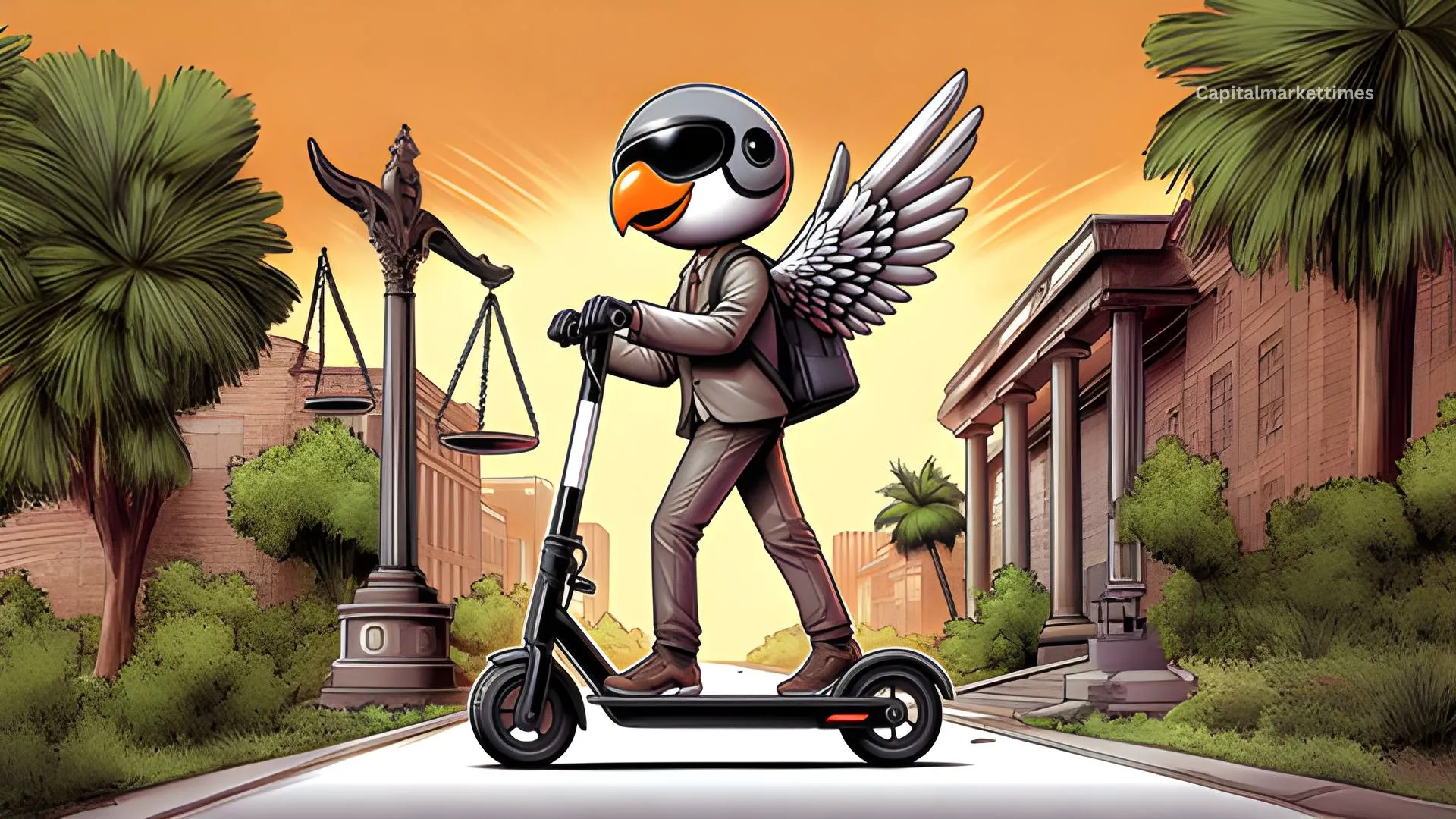Electric Scooter Rental Pioneer Bird Files For Bankruptcy

Once a darling of the micro-mobility revolution, Bird’s electric scooters are now seeking greener pastures through bankruptcy. The company filed for Chapter 11 protection in Florida on Wednesday, aiming to sell its assets within four months and revive its sputtering engine.
Bird’s journey began with a bang. Founded in 2017, the company quickly gained traction with its vision of eco-friendly urban transportation. Investors flocked to the cause, pushing its valuation to a staggering $2.5 billion by 2019. However, the pandemic brought screeching brakes to its growth. Lockdowns and safety concerns kept riders indoors, leaving the company’s fleet gathering dust.
Despite the pandemic’s slowdown, Bird attempted a public debut in 2021, merging with a special purpose acquisition company (SPAC). However, the stock market wasn’t as charmed as early investors. it’s share price plummeted, and the company faced delisting from the New York Stock Exchange in September 2022.
After all the struggles now bankruptcy offers a chance to shed baggage and find a new owner. A “stalking horse” agreement sets a minimum value for company assets, attracting potential buyers for a swift 90-120-day sale.
Beyond the Balance Sheet: A Micromobility Morality Tale
Bird’s story is not just about financial woes. It reflects the broader challenges faced by the micromobility industry. Concerns about safety, accessibility, and regulation have plagued electric scooters since their inception. Cities around the world have implemented restrictions or outright bans, further hindering company operations.
Unregulated scooter herds roamed free, creating obstacles for pedestrians and sparking public outcry. Concerns over safety and accessibility mounted, with vulnerable groups like the visually impaired facing particular challenges.
Cities reacted in diverse ways. Paris, Montreal, and Barcelona went for outright bans, while others imposed strict regulations and designated parking zones. This regulatory patchwork created operational headaches for the company, further hindering its profitability.
The Road Ahead: Can Bird Reclaim its Wings?
Bird’s bankruptcy doesn’t spell the end for electric scooters. But it does expose the need for a more sustainable and responsible approach to micromobility. Potential buyers and policymakers alike must learn from it’s missteps to ensure a smoother ride for the future of urban transportation.
Prioritizing rider and pedestrian safety must be paramount. This means stricter regulations, designated parking zones, and educational campaigns to promote responsible riding.
Cities, scooter companies, and residents need to work together to create micromobility ecosystems that benefit everyone. Data-driven solutions, clear communication, and pilot programs can pave the way for a more harmonious relationship.
Operational issues shouldn’t overshadow the environmental benefits of micromobility. Companies like Bird must explore innovative solutions for battery life, recycling, and responsible manufacturing to truly embody the green ideals they champion.
Bird’s bankruptcy may mark a temporary pause, but the journey towards a greener, more equitable urban transportation isn’t over. By learning from past mistakes and prioritizing safety, collaboration, and sustainability, the future of micromobility can take flight once again.






